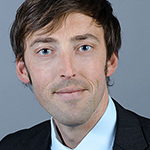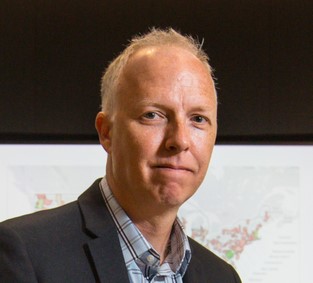New Tools for Science Policy
How Complexity Science Can Guide Urban Transformations
Lessons from Germany
About the Seminar
March 29, 2023 9:00am—10:00am
Urban and regional economies must constantly adapt to challenges. From planned redevelopment efforts to unexpected shocks like natural disasters, these economies are in constant flux. How can we best plan for beneficial, inclusive economic transitions?
Recent breakthroughs in complexity science and related fields offer new insights and solutions to guide cities through economic transitions. Complexity science techniques were piloted in Lausitz, Germany, a region heavily dependent on coal mining and other extraction industries. German Energiewende (energy transition) policy aims to make the country climate neutral by 2025, which would replace extraction industries with new, green ones. This transition will need new infrastructure, new skills for workers, and new industries.
On March 29 at 9AM ET, join Shade T. Shutters (Arizona State University) and Bastian Alm (German Federal Ministry for Economic Affairs and Climate Action) for a New Tools in Science Policy breakfast seminar. Examining how these new techniques have been applied in Germany gives a glimpse of how science can help cities in other countries navigate disruptions, whether due to energy policies, natural disasters, or simply reconfiguring local economies for a brighter future.
Location Information
ASU Barrett & O’Connor Center
1800 I St NW
8th Floor
Washington, DC 20006
Additional Information
Event Policies:
- Attendees are required to show proof of up to date COVID-19 vaccination with ID.
- Breakfast will be provided.
- Doors open at 8:30AM ET.
- This event will also be livestreamed. Register here to attend virtually.
Links
Speakers
Past Series
-
October 03, 2024 3:30pm
Carbon Removal Social [Science]
Holly Buck, Sara Nawaz, Rory Jacobson, Marcela Mulholland, Amanda Borth
-
December 15, 2023 9:00am
Responsible Artificial Intelligence: Policy Pathways to a Positive AI Future
Andrew Maynard
-
November 17, 2023 9:00am
“Unacceptable Costs”: Managing for biological invasions and climate risks in the US Pacific Islands
Laura Brewington
-
October 30, 2023 9:00am
Patent Data & Publicly-Funded Research: Applications, Benefits, & Misuse
Bhaven N. Sampat
-
April 05, 2023 9:00am
Quantity over Quality: How to Solve Electric Vehicle Charging Infrastructure
Ryan Cornell
-
March 29, 2023 9:00am
How Complexity Science Can Guide Urban Transformations
Bastian Alm, Shade Shutters
-
February 02, 2023 9:00am
Making Research Matter for Policy
Robert M Cook-Deegan
-
October 07, 2022 9:00am
Creating Justice, Trust, and Inclusivity in Climate Policymaking
Kaiping Chen
-
March 21, 2022 9:00am
Framing Our Biological Futures
Cynthia Selin, Christopher Scott, David Tomblin, Janine Myszka , Lauren Lambert, Haley Manley, Dorit Barlevy

